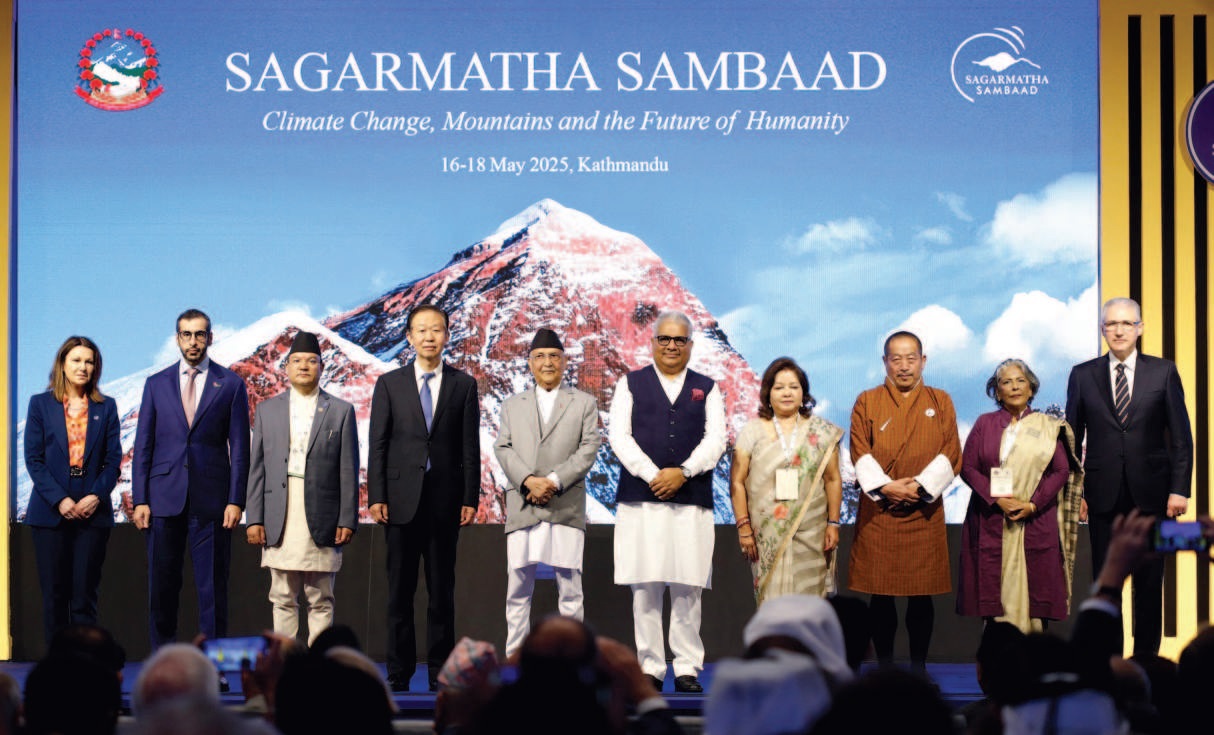
Sagarmatha Sambad 2025 Opens in Kathmandu with a Focus on Climate and Humanity
The Sagarmatha Sambad 2025 has officially begun in Kathmandu and continues to May 18. With the theme "Himalayas and the Future of Humanity," the event brings together global leaders, experts, and representatives to address pressing climate challenges. Key topics include connecting mountain and island nations, advancing green economies, minimizing climate damage, pushing for climate justice, and building stronger global partnerships.
At the opening, keynote speakers pointed out that wealthier nations have contributed more to climate change and should bear greater responsibility. They stressed that financial support must reach the countries facing the harshest effects, often the poorest.
Prime Minister KP Sharma Oli emphasized that countries producing the most pollution must lead financing, technology sharing, and capacity development efforts. He reminded the audience that the Himalayas should never be left out of climate conversations.
He called climate change the greatest challenge of our time and said no nation can tackle it alone. “This is a global emergency, and the solutions must be global too,” he said.
Foreign Minister Arzu Rana Deuba described climate change as a worldwide crisis requiring collective commitment, cooperation, and coordination. She explained that Sagarmatha Sambad 2025 is a platform for discussing current climate risks and finding common ground.
She highlighted Nepal’s increasing climate vulnerability and said the event aims to strengthen Nepal’s voice on climate justice and support global advocacy.
International Support and Commitments
Representatives from various countries acknowledged that climate change affects everyone and expressed willingness to collaborate with Nepal.
India’s Minister for Environment, Forest, and Climate Change, Bhupender Yadav, praised Nepal for initiating this platform and noted that Himalayan glaciers are sending alarming signals. “This is not just a discussion—it’s a call to action,” he said.
China and Azerbaijan: Strengthening Ties Through Climate Dialogue
Xiao Jie, Vice Chairman of China’s National People’s Congress Standing Committee, said China prioritizes working with Nepal in the Sagarmatha region. He added that this dialogue reflects the strong friendship between both countries and offers a vital space to share climate concerns.
Mukhatar Babayev, COP29 President and Azerbaijan’s Minister for Ecology and Natural Resources, warned that climate threats are accelerating. He stressed that glacier melt and rising sea levels are serious warnings, putting nearly 10% of global coastal areas at risk, from South Asia to Sub-Saharan Africa.
UN Secretary-General Sends a Message
UN Secretary-General António Guterres addressed the gathering through a video message. He acknowledged the impact of melting glaciers on Himalayan rivers and communities, and urged global leaders to act. “Nepal’s efforts offer valuable lessons for all of us,” he said.
Day One Session: Linking Mountains to Oceans
The opening day featured a special session titled “Beyond Mountains: Linking Mountains to Oceans.” Speakers discussed:
-
The need to keep global warming below 1.5°C to protect glaciers
-
Building cooperation between mountain and island nations
-
Climate-resilient agriculture and food security
-
Community-driven climate solutions in mountain regions
Looking Ahead: Green Economy on Day Two
On the second day, the dialogue will turn toward green economy discussions and strategies for climate-friendly development, with input from researchers, policymakers, and partner countries.
A Vision Born Six Years Ago
Nepal initiated the idea for the Sagarmatha Sambad nearly six years ago to bring global attention to the climate crisis affecting the Himalayas. However, the COVID-19 pandemic and changes in government delayed it.
With the 2025 edition underway, the government plans to establish it as a recurring international platform every two years. Over 150 international guests are attending the first edition of the dialogue, which officially began on Friday, May 16, 2025.


